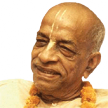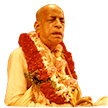Bliss - an essential subject: Difference between revisions
(Created page with "Category:Essential Subjects <!----------------------- edit below this line -----------------------> <!------------------------ begin introduction text below --------------...") |
(Vanibot #0041: Moves Choose Another box to the end) |
||
| Line 2: | Line 2: | ||
<!----------------------- edit below this line -----------------------> | <!----------------------- edit below this line -----------------------> | ||
<!------------------------ begin introduction text below ------------------------> | <!------------------------ begin introduction text below ------------------------> | ||
The destination of transcendence is to become the personal associate of the Personality of Godhead, who is known as adhokṣaja, He who is beyond the reach of the senses. The renouncers of the world, the sannyāsīs, give up all worldly connections, namely, family, wife, children, friends, home, wealth—everything—to attain the transcendental bliss of Brahman happiness. But adhokṣaja happiness is beyond Brahman happiness. The empiric philosophers enjoy a transcendental quality of bliss by philosophical speculation on the Supreme Truth, but beyond that pleasure is the pleasure enjoyed by Brahman in His eternal form of the Personality of Godhead. Brahman bliss is enjoyed by living entities after liberation from material bondage. But Parabrahman, the Personality of Godhead, enjoys eternally a bliss of His own potency, which is called the hlādinī potency. The empiric philosopher who studies Brahman by negation of the external features has not yet learned the quality of the hlādinī potency of Brahman. | |||
Srila Prabhupada's books, lectures, conversations and letters offer a comprehensive presentation of this essential subject as seen in the Vaniquotes '''[[Vaniquotes:Category: | Srila Prabhupada's books, lectures, conversations and letters offer a comprehensive presentation of this essential subject as seen in the Vaniquotes '''[[Vaniquotes:Category:Bliss|Bliss]]''' category. An introduction from his books is given below in the following 8 quotes. | ||
<!-------- end introduction text and don't touch next three lines ---------> | <!-------- end introduction text and don't touch next three lines ---------> | ||
---- | ---- | ||
== Quotes from Srila Prabhupada's books == | == Quotes from Srila Prabhupada's books == | ||
<!----------------- edit quote boxes below this line -----------------> | <!----------------- edit quote boxes below this line -----------------> | ||
{{VaniQuotebox| | {{VaniQuotebox|A devotee always merges in transcendental happiness, and therefore he has no experience of material distresses. This transcendental happiness is called eternal bliss|A devotee always merges in transcendental happiness, and therefore he has no experience of material distresses. This transcendental happiness is called eternal bliss. According to the opinion of devotees, constant remembrance of the Supreme Lord is called samādhi, or trance. If one is constantly in trance, there is no possibility of his being attacked or even touched by the modes of material nature. '''(Śrīmad-Bhāgavatam 3.33.27)'''}} | ||
{{VaniQuotebox| | {{VaniQuotebox|In the material world we have no experience of eternity, bliss and fullness of knowledge. But in the spiritual world, because of the complete absence of the qualitative modes, everything is eternal, blissful and cognizant|In the material world we have no experience of eternity, bliss and fullness of knowledge. But in the spiritual world, because of the complete absence of the qualitative modes, everything is eternal, blissful and cognizant. Everything can speak, everything can move, everything can hear, and everything can see in fully blessed existence for eternity. The situation being so, naturally space and time, in the forms of past, present and future, have no influence there. '''(Caitanya-caritāmṛta, Ādi-līlā 5.22)'''}} | ||
{{VaniQuotebox| | {{VaniQuotebox|The empiric philosophers enjoy a transcendental quality of bliss by philosophical speculation on the Supreme Truth, but beyond that pleasure is the pleasure enjoyed by Brahman in His eternal form of the Personality of Godhead|The empiric philosophers enjoy a transcendental quality of bliss by philosophical speculation on the Supreme Truth, but beyond that pleasure is the pleasure enjoyed by Brahman in His eternal form of the Personality of Godhead. Brahman bliss is enjoyed by living entities after liberation from material bondage. But Parabrahman, the Personality of Godhead, enjoys eternally a bliss of His own potency, which is called the hlādinī potency. '''(Śrīmad-Bhāgavatam 3.1.31)'''}} | ||
{{VaniQuotebox| | {{VaniQuotebox|The concrete example is Narada Himself, who attained this stage of eternal knowledge and eternal bliss. And the ways and means are open to all, provided one agrees to follow in the footsteps of Sri Narada Muni|The Lord desires, as He has directly said in the Bhagavad-gītā, that all conditioned souls, rotting in the kingdom of material energy, come back to Him by giving up all engagements in the material world. This is the most confidential part of knowledge. But this can be understood only by the pure devotees, and only such devotees enter the kingdom of God to see Him personally and serve Him personally. The concrete example is Nārada Himself, who attained this stage of eternal knowledge and eternal bliss. And the ways and means are open to all, provided one agrees to follow in the footsteps of Śrī Nārada Muni. '''(Śrīmad-Bhāgavatam 1.5.31)'''}} | ||
{{VaniQuotebox| | {{VaniQuotebox|The bliss of self-realization, brahmananda, cannot be equated with devotional service|The bliss enjoyed by the Supreme Personality of Godhead cannot be of material composition, like the impersonalist conception of the bliss of Brahman. Devotional service is reciprocation between two, and therefore it cannot be located simply within one's self. Therefore the bliss of self-realization, brahmānanda, cannot be equated with devotional service. '''(Caitanya-caritāmṛta, Ādi-līlā 4.60)'''}} | ||
{{VaniQuotebox| | {{VaniQuotebox|In His village of Vrndavana He enjoyed Himself with His mother, brother and friends, and when He played the role of a naughty butter thief, all His associates enjoyed celestial bliss by His stealing|In His village of Vṛndāvana He enjoyed Himself with His mother, brother and friends, and when He played the role of a naughty butter thief, all His associates enjoyed celestial bliss by His stealing. The Lord's fame as a butter thief is not reproachable, for by stealing butter the Lord gave pleasure to His pure devotees. Everything the Lord did in Vṛndāvana was for the pleasure of His associates there. '''(Sri Isopaniṣad, Mantra 15)'''}} | ||
{{VaniQuotebox| | {{VaniQuotebox|Despite the transcendental qualities of Lord Krsna's body, its full bliss and knowledge, there are many so-called scholars and commentators of Bhagavad-gita who deride Krsna as an ordinary man|Despite the transcendental qualities of Lord Kṛṣṇa's body, its full bliss and knowledge, there are many so-called scholars and commentators of Bhagavad-gītā who deride Kṛṣṇa as an ordinary man. The scholar may be born an extraordinary man due to his previous good work, but this conception of Śrī Kṛṣṇa is due to a poor fund of knowledge. Therefore he is called mūḍha. '''(Bhagavad-gītā 9.11)'''}} | ||
{{VaniQuotebox| | {{VaniQuotebox|For a bhakta to become attached to family affairs is impossible, since a bhakta and his associates are liberated. Everyone is searching after ananda, or bliss, but in the material world there can never be any bliss|For a bhakta to become attached to family affairs is impossible, since a bhakta and his associates are liberated. Everyone is searching after ānanda, or bliss, but in the material world there can never be any bliss. It is only possible in devotional service. Attachment for family affairs and devotional service are incompatible. Therefore Mahārāja Parīkṣit was somewhat surprised to hear that Mahārāja Priyavrata was simultaneously attached to devotional service and to family life. '''(Śrīmad-Bhāgavatam 5.1.2)'''}} | ||
<!----------------- edit quote boxes above this line -----------------> | <!----------------- edit quote boxes above this line -----------------> | ||
''' | '''Bliss - [[Vaniquotes:Category:Bliss|explore more within this category]]'''. | ||
{{EsentialSubjectTotal}} | {{EsentialSubjectTotal}} | ||
<div style="float:left;"> | |||
{{EssentialSubjectnav}} | |||
</div> | |||
__NOTOC__ | __NOTOC__ | ||
__NOEDITSECTION__ | __NOEDITSECTION__ | ||
Latest revision as of 15:56, 22 November 2020
The destination of transcendence is to become the personal associate of the Personality of Godhead, who is known as adhokṣaja, He who is beyond the reach of the senses. The renouncers of the world, the sannyāsīs, give up all worldly connections, namely, family, wife, children, friends, home, wealth—everything—to attain the transcendental bliss of Brahman happiness. But adhokṣaja happiness is beyond Brahman happiness. The empiric philosophers enjoy a transcendental quality of bliss by philosophical speculation on the Supreme Truth, but beyond that pleasure is the pleasure enjoyed by Brahman in His eternal form of the Personality of Godhead. Brahman bliss is enjoyed by living entities after liberation from material bondage. But Parabrahman, the Personality of Godhead, enjoys eternally a bliss of His own potency, which is called the hlādinī potency. The empiric philosopher who studies Brahman by negation of the external features has not yet learned the quality of the hlādinī potency of Brahman.
Srila Prabhupada's books, lectures, conversations and letters offer a comprehensive presentation of this essential subject as seen in the Vaniquotes Bliss category. An introduction from his books is given below in the following 8 quotes.
Quotes from Srila Prabhupada's books
Bliss - explore more within this category.
Vanipedia has now over 903 introductory articles compiled from Srila Prabhupada's books under the series titled Essential Subjects. All these articles can be seen in the Table of Content on the right side of this article and also here in this Umbrella Category. Browse through them to relish the breadth and depth of Srila Prabhupada's teachings - There is a subject for everyone.







